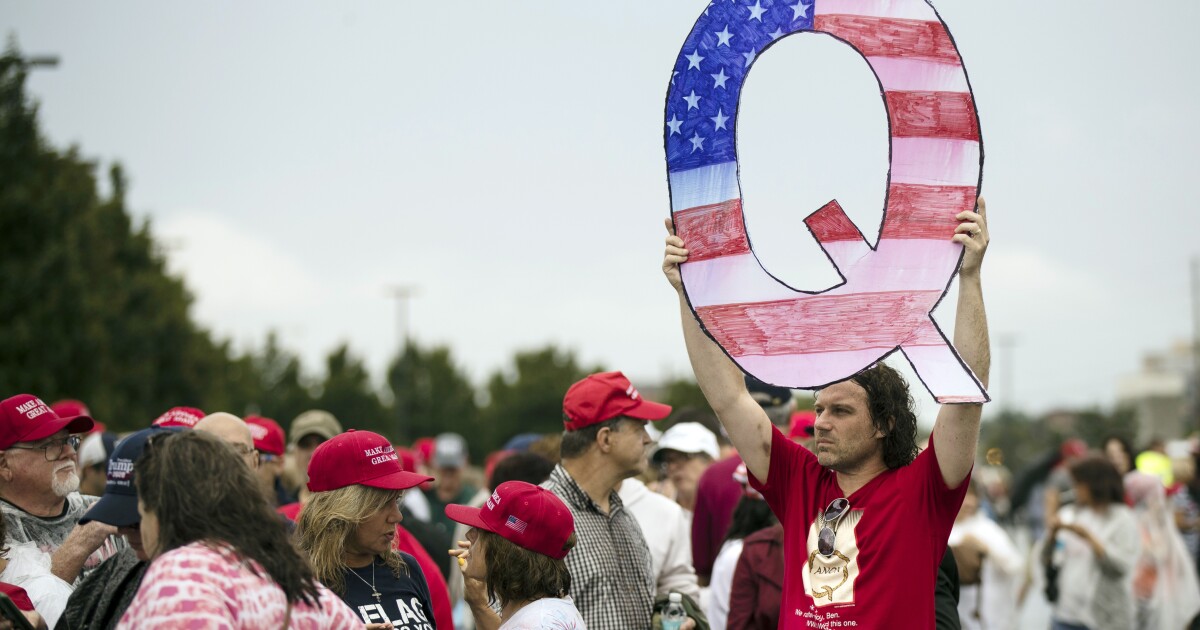Do evangelical teachings make believers vulnerable to QAnon?

To the editor: The fine report on evangelical Christians being vulnerable to QAnon and other such conspiracy theories concludes with a quote from a Southern Baptist pastor lamenting his flock’s vulnerability to these theories.
The pastor needs to look no further than into the central tenet of his religion: the infallibility of the Bible and the belief in the literal meaning of everything in this text.
Religious scholars have for a long time noted that because of the editorial process that went into the making of the Bible in the 4th century, the words in it really shouldn’t be taken literally. Rather, believers should take the main philosophy and teachings of the text as a guide to spirituality.
The basic nature of evangelical thought, however, makes its adherents vulnerable to outrageous ideas like QAnon. I do not doubt the sincerity of the beliefs of the pastors and their parishioners, but the pastors need to move past surprise and acknowledge the role of their beliefs in making believers vulnerable to modern-day conspiracy theories.
The true embrace by many evangelical leaders of Donald Trump over the past five years is just now simply bearing fruit among their flock.
Gunnar Valgeirsson, Alhambra
..
To the editor: Like the pastors in your article, many of us have been puzzled and dismayed by Christians who appear to embrace falsehoods, immorality and conspiracy theories.
I have been challenged by one such person, a “devout” Catholic and retired school principal who embraces former President Trump and totally agrees that the election was rigged. She dislikes Pope Francis and recently said this about him: “Pope Francis is going to Iraq and will meet with a Shiite cleric. Shiite Muslims are in Iran.”
I responded, “He is doing the work of Jesus Christ, which isn’t easy to do.” Her response was, “Jesus did not have to deal with Islam.”
There is a cognitive blindness in her and many of our citizens. Is it due to age, education, an inability to cope with modern complexities or something else? The people who study cults might have some answers.
Whatever the cause, the rest of us had better find some deprogramming solutions, because this kind of thinking threatens our country.
Linda Mele Johnson, Long Beach
..
To the editor: As a lifelong Episcopalian, I can assure readers that the radical conspiracy theories espoused by some evangelical Christians are far from the norm among Episcopalians and other mainline Protestants.
I commend the evangelical pastors who spoke out against such false and totally non-Christian conspiracy theories among their flock. I encourage all Christians to speak out against such falsehoods.
This is not the way of Jesus.
Betsy Hiteshew, Santa Monica


